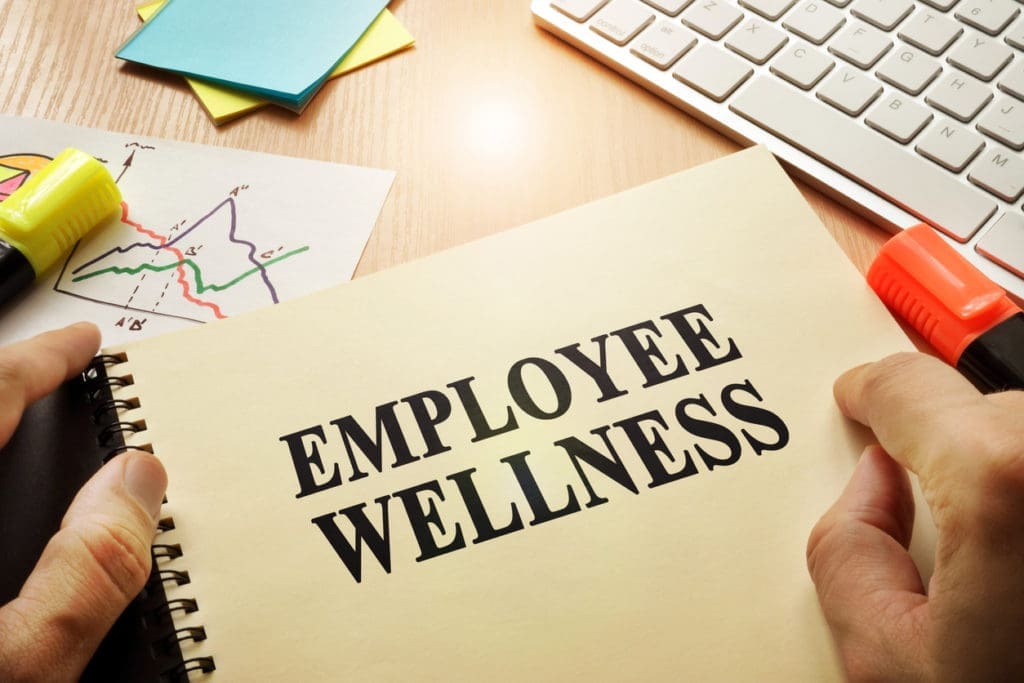How Employee Assistance Programs are Coming to the Forefront of Company Benefits

Employee assistance programs are coming to the forefront of company benefits over the last two years. Traditionally, the most important benefits to employees have been health insurance, paid time off, and retirement plans, and we are beginning to see benefits rise as one of the primary ways to support and keep talented employees.
With roughly one in five U.S. adults experiencing a mental illness before the pandemic, employee assistance programs are a way businesses can support a large number of their employees. Especially in high-stress and overworked positions, these programs can return much more value than their upfront cost.
What is an Employee Assistance Program?
An employee assistance program (EAP) is a work-based program that offers “free and confidential assessments, short-term counseling, referrals, and follow-up services to employees who have personal and-or work-related problems.”
One of the reasons EAPs are so successful is their tremendous flexibility. EAPs address a wide variety of issues relating to emotional and mental well-being. Employees with access to an EAP are essentially equipped with free counseling services, along with many other benefits.
EAPs assist employees in overcoming personal or professional difficulties. Whether it is alcohol or drug dependencies, difficulty with financial planning, or mental health, employees are assisted in managing these things in their personal lives and handling them in their work lives.
EAP counselors often work with employers in a consulting capacity as well. For example, if managers recognize that their staff is under high stress, consulting an EAP counselor is a great way to brainstorm ways to better support employee well-being. In today’s work environment, where employees are constantly evaluating their job satisfaction, an EAP can help employees better manage stress in their position.
Though these are the primary ways EAPs are valuable to businesses, there are many reasons why they are becoming one of the most critical benefits companies are adding to their current offerings. EAPs boast a high return on investment, and they do this because EAPs assist businesses in so many areas that are overlooked in the current market.
How Does an EAP Benefit the Business?
EAP return on investment is derived from the breadth of benefits and the consequent productivity boost. Many businesses are offering these programs. Employees who are stressed out, needing caregiving for a family member, struggling with addiction, or needing mental health support do not perform as well as they could if they had those things. Happier and healthier employees mean more productive employees.
Many Businesses Offer an EAP
According to a 2019 SHRM study, 79% of surveyed employers offered an EAP, and that number has undoubtedly increased during pandemic years. The data shows that EAPs are not only beneficial for the company, but they are becoming regular benefits for professionals. Employees are getting used to these programs, and many utilize the depth of resources provided. We are also seeing these benefits continue to expand to meet the growing needs of flexibility in the workforce.
Good Employees Want EAPs
The high percentage of employers offering an EAP is purposeful. Employees simply want more support from their employer, and employers recognize these programs’ benefits. Not only do they work, but they are also becoming a crucial benefit in a COVID-19 work environment.
Studies show that employees are under significantly more stress than pre-pandemic, which is known to negatively impact employee performance. Furthermore, dipping employee performance leads to feelings of unfulfilling work, which is a significant factor in turnover. Therefore, especially for employees in high-stress environments, additional avenues for care are essential as we navigate the changing work environment.
Having an EAP and equipping employees to know how it supports them will not only increase job satisfaction, but it will support employees in their ability to work closer to their full potential, which is what employers want. These programs specialize in assisting employees with their day-to-day needs that interfere with their ability to perform well at work. They are like massage therapists for professional athletes. They work with the employee to diagnose the problem and develop flexible solutions.
EAP Business Consulting
EAPs also work with businesses in a kind of consulting capacity. This allows them to brainstorm ways to make the work environment more conducive to employee health. In addition, many EAPs help address safety and security concerns in the workplace, showing businesses ways to optimize better.
How Does an EAP Benefit the Employee?
Download: How Employee Assistance Programs are Coming to the Forefront of Company Benefits
Though EAPs provide the employer with many residual benefits, as their names suggest, these programs are designed to support the employees themselves. Though you understand how an EAP might support employees in their personal or professional struggles, you may not see the depth of an EAP’s impact.
EAP Benefits Often Support an Employee’s Family
Many EAPs extend benefits to the employee’s family, often going deeper than the employee themselves. Many employees have families and might need help in certain circumstances. EAPs can also assist employees in these areas where health insurance might not be applicable.
EAP Regulations Secure Benefit Offerings
The Employee Assistance Professionals Association (EAPA) requires many standards for its members. Though an EAP does not have to be a member of EAPA, most legitimate EAPs are members, and they provide EAPs with a lot of helpful resources in the industry.
The EAPA’s standards include vital services such as 24/7 crisis intervention, training for organization leaders, and processes for adding services as an organization needs change. As you can see, one of the significant benefits of an EAP is its adaptability. EAPs are designed to be able to process complex needs at short notice.
EAP Benefits During COVID: How They Are Helpful Now
During COVID, many employers and employees began reconsidering their priorities. Questions about the value of fulfilling work, which work benefits are most important, and how to balance health and professional life came to the forefront.

